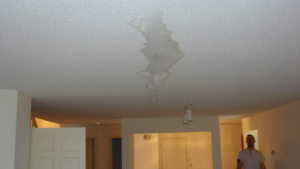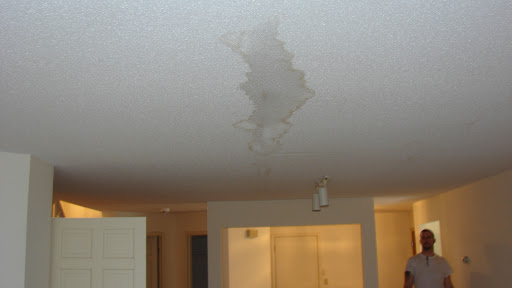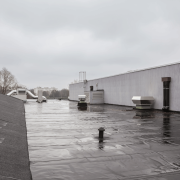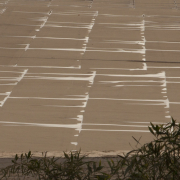Is Standing Water on a Flat Roof a Problem?
Is Standing Water on a Flat Roof a Problem?
When water starts to stand on your roof, not only does it lead to leaking and other damages to your property, it also reduces your roof’s lifespan and negatively impacts its structure. In the roofing industry, ponding water refers to water that has stood flat on your roof for longer than 2 days following rain.
Standing water on a flat roof is also known as ponding which is a term that describes how the water collects in pools on certain surfaces of the roof, thus forming ponds. This typically happens right after a heavy downpour. However, most pools either drain off the roof or evaporate. When the water is stuck on your roof for prolonged periods of time, typically more than 48 hours, then it should be something that needs to be dealt with.
If it lasts for much longer, contacting a professional roofing team would be the best option in order to avoid further damage to your property.
It is also essential to note that ponding is not typically an imminent threat, as roof membranes are composed of water-resistant materials. Although immediate leakage is not likely to occur, recurring ponding can cause damage to the roof.
But the best thing to do is to keep your roof in tip-top shape to avoid major damages and to also keep it at optimum performance levels. That is also the best way to get the most out of your roof over the years.
Is standing water on a flat roof a problem?
Yes, it is.
The next question you should now be asking is “how do i fix this problem?”
In order to find a solution, every homeowner should first identify the reason why their flat roof is holding water.

Reason 1 – Inadequate or Obstructed Roof Drainage Systems
One of the most common reasons why a flat roof tends to hold standing water is due to the fact that there is an ineffective drainage system. When the drainage system of your roof is inadequate or obstructed, this will tend to keep the water on the roof, especially since there is no roof slope to naturally drain the water away with the aid of gravity.
While this might seem like a major problem that will require an entire roof replacement to solve, this is actually one of the easier reasons to correct. One of the major fixes is to implement regular roof maintenance. There are 3 different ways that flat roofs drain. The first is through the roof scuppers which are collector heads leading to downspouts. The second is through sloping towards a gutter system that guides the water away from the roof. The third is through roof drains.
By maintaining roof drains and gutter systems clean, water should flow out and avoid ponding.
Reason 2 – Roofing Structure, Design, and Deflection.
Another reason that can cause ponding water on your flat roof is because of the form of the roof itself. This is trickier to fix because regular roof maintenance will no longer be able to cut it. When a roof is designed poorly, ponding water can be due to the structure or by parts of the roof that start to sag under pressure.
This issue can also be because of improper placement of roof gutters and drains, which can lead to these drainage systems to be inefficient even when clear and unobstructed. If the structure that the flat roof is installed upon has settled or sagged, ponding water will be equal to the distance that the structure has deflected below the roof gutters or scuppers.
Reason 3 – Compressed or Saturated Roof Insulation
The third reason which is a common cause for ponding water is due to compressed or smashed roofing insulation layers. This can occur due to the added weight of construction materials, HVAC equipment, or other heavy equipment placed on top of a flat roof. Over time, roof insulation may have also degraded and become saturated.
Most flat roofing insulation systems tend to be quite sensitive to water and degrade rapidly or even dissolve when exposed to water or other liquids. When the insulation layer starts to degrade or dissolve, it loses its shape and forms an indentation on your roof where water can form ponds. This will then cause an even bigger problem since the standing water can cause more damage to the roof and the underlying insulation, thus making the indentation grow deeper, increasing the area where water is collecting. The best way to fix this is to replace the roofing insulation layer.
Determining the major causes of standing water on your flat roof can be a difficult task. However, there are experts in your area readily available to give you a hand and recommend the best course of action.







